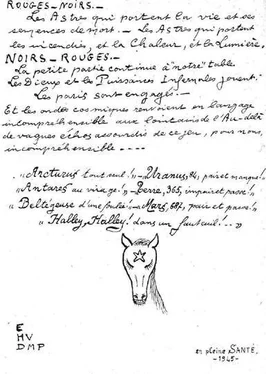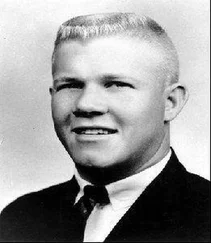34.
NAUFRAGEUR
WHATEVER THE OUTCOME OF THIS TRIAL MIGHT BE, I WILL ALWAYS BE GLAD TO HAVE SHARED A CELL WITH DR. PETIOT.
—Lieutenant Richard Héritier
AFTER a break Sunday, the trial would enter its third and final week on Monday, April 1. By this time, all the prosecution witnesses had testified and the defense would begin calling its witnesses. Tuesday and Wednesday would be devoted to the presentations of the civil suit attorneys, followed by the prosecution’s closing statement. On Thursday, Floriot would sum up the defense, and then the jury would convene for its deliberations. This, at least, was the schedule that Leser outlined for the court.
Rumors circulated that morning that the justices of the War Crimes Trial at Nuremberg would take a break from their historic proceedings and attend the Petiot Trial. Many in the audience actually expected Robert H. Jackson, chief justice of the U.S. Supreme Court, and his fellow American, Soviet, British, and French justices of the Nuremberg Commission to enter at any moment and assume the row of empty chairs placed behind Leser. Others believed that this was just another unsubstantiated rumor that spread in the hothouse climate of this unorthodox trial, perhaps even an April Fool’s prank.
With April 1 also being day thirteen of the trial, several astrologers and Tarot card readers were predicting a big day for Marcel Petiot. For the first time since the opening, however, it was not difficult to find a seat. Attendance was down considerably. Many Parisians had formed their opinions and, no doubt, knew that the defense witnesses would not offer as dramatic, or chilling, testimony. So for this brilliant spring day, even many regular trial attendees chose the boulevards, parks, and sidewalk cafés over the courtroom drama at the Palais de Justice.
Before the first witness took the stand, Maître Henry wanted to clarify what he had meant at the end of the previous day. He had not intended to propose that Petiot be charged for treason and the trial move to the High Court, no matter what the journalists and audience remembered. Instead, he claimed that he merely wanted to ensure that the defendant and his accomplices would be held responsible for their crimes. It was not a credible retraction. Leser stopped him to call the first witness.
François Comte, a decorated World War I veteran and shop owner in Villeneuve-sur-Yonne, spoke fondly of his experience as a patient at Petiot’s clinic. He praised Petiot for his service to the poor, including his frequent treatment without charging a sou. Comte went on to explain how Petiot, an innocent man, ended up in such a predicament: the malicious slander of his enemies.
After this novel theory, which was championed with unusual vigor, Comte proceeded to elaborate on how many of Petiot’s rivals, particularly conservative, right-wing townsmen, had opposed his expensive reforms. Other people, he said, resented that Petiot chose to marry Georgette Lablais, the daughter of a Seignelay pork butcher, rather than one of their own daughters.
Emile Pathier, a retired porter in his seventies who had previously served with Petiot on the municipal council, agreed, calling Villeneuve-sur-Yonne “a veritable fire-box of political intrigue.” Still, Petiot had managed to improve the city in many ways. He had built a sewer system over the opposition of many critics and transformed the educational system from a “true nest of tuberculosis” into a quality institution. He was, simply, “incapable of doing the things that he had been accused of doing.”
From the first witness, every Petiot defender spoke with conviction. Fellow townsmen and former patients alike praised the contributions of the popular, influential doctor. One witness told how Petiot cured a man who had suffered a serious injury from falling out of a poplar tree, visiting him every day for three years and nine months. Another witness testified that he had been overwhelmed by stress in his work and Petiot had even paid for his vacation. When the war came, he was said to hide British pilots and help patients avoid deportation to Germany by giving injections that made them temporarily ill. “Petiot was a Frenchman one hundred percent,” Monsieur Mure said, before correcting himself. “Make that two hundred percent.”
Not everyone in the courtroom was swayed by the testimony. Robert Danger of France-Soir concluded that Petiot had not been able to “kill everyone.”
THE most effective witness for the defense was the decorated Resistance fighter Lieutenant Richard Héritier, a member of the SOE’s RF unit that was dropped into Ruffey-sur-Seille in the Jura in February 1943. After his capture by the Germans, Héritier was imprisoned on June 10, 1943, at Fresnes, where for the next five months he had shared cell 440 with Marcel Petiot.
Héritier made several important claims about his cell mate. Given their many lengthy, detailed discussions in prison, often about the Fly-Tox organization and the clandestine escape network, Héritier had never doubted Petiot’s Resistance credentials. Petiot had not only shown his inside knowledge of the movement, but he had also furnished Héritier with contact information of other Resistants in Paris, should he ever escape.
Among other things, Petiot had coached him on surviving the horrific interrogations of the Gestapo. He had surprised and even impressed hardened Resistance fighters with his audacity. Héritier testified that he had repeatedly been amazed by Petiot’s almost complete lack of fear, to the point of taunting the Gestapo jailors. He was an inspiration to his prison mates, Héritier added, to a stunned courtroom, the audience and jury alike hanging on every word.
“You spent five months with him,” Floriot said. “Do you think that a man can conceal his true feelings for five months?”
Héritier doubted that was possible. A prison cell was simply too intimate.
Floriot asked his opinion about the defendant.
“I think that first, Petiot did not act alone. Second, he was a member of a political party that was very active in the Resistance, but not the official Resistance that worked directly with the Allies. I believe that this party gave him orders which he carried out in his own way.” The unidentified party was of course the Communists, which had furnished France and other countries in Occupied Europe with many Resistance fighters.
“After the beating he took in the press,” Héritier continued, “the party that dared to claim Petiot would find itself sinking in the elections.” Petiot had in other words “sacrificed himself for the cause,” only to be unceremoniously discarded.
Petiot then asked the witness if a rational person could possibly think that he served the Gestapo.
“I don’t believe so,” Héritier said. “Whatever the outcome of this trial might be, I will always be glad to have shared a cell with Dr. Petiot.”
After another Resistant and former cellmate, Roger Courtot, testified that Petiot was “without any question a real Resistant and a courageous one,” the defense called to the stand Germaine Barré, a stylish blond dressmaker who had served in the British Secret Intelligence Service. She had been present in Jodkum’s office when the Gestapo commissioner questioned Petiot.
Based on what she saw and heard, Barré was convinced that Petiot could not have worked for the Gestapo. She also told the court of Petiot’s response when Jodkum asked if he would like to purchase his release for 100,000 francs: “I do not care whether you free me or not. I have stomach cancer and I do not have long to live anyway.” Barré then testified that Jodkum called Petiot’s brother to obtain the ransom.
Petiot asked the witness if she recalled his response when Jodkum wanted him to swear an oath never to engage in any activity against the German authorities. Yes, Barré answered. The defendant would not sign anything at all.
Читать дальше












